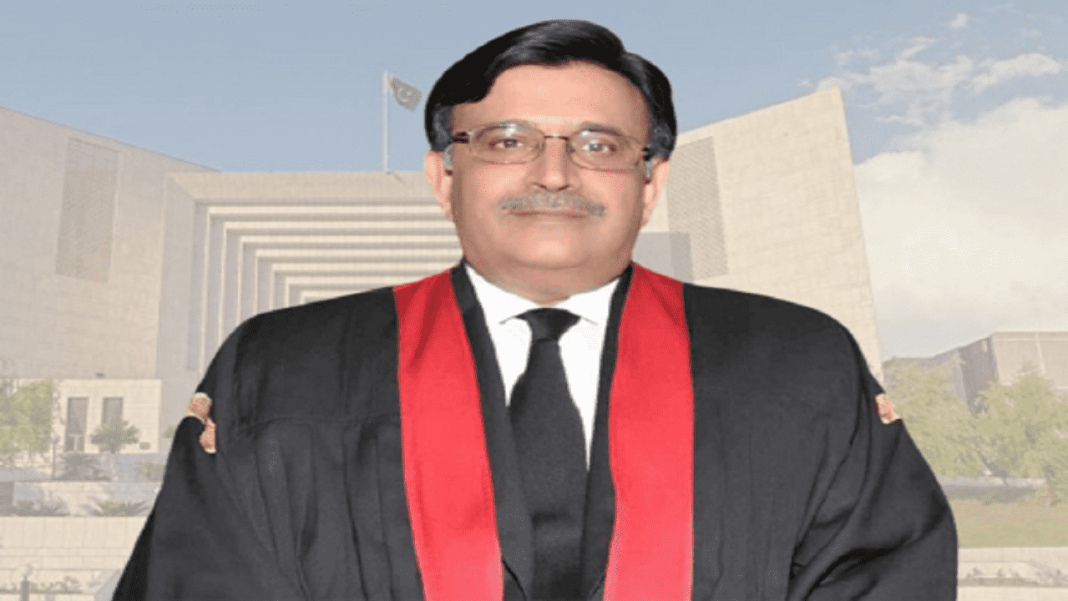By Asif Ullah Khan
The rampaging Imran Khan is turning out to be a veritable bull in a china shop for the higher judiciary and the military establishment, Pakistan’s most established institutions.
Since his ouster, Imran’s virulent outburst against the former army chief, Gen Qamar Javed Bajwa, has pushed the military establishment on the back foot for the first time in Pakistan’s history. Now, for the first time in Pakistan’s history, divisions in the Supreme Court have come to the fore.
Many legal luminaries are calling it a judicial coup against the chief justice after two fellow judges challenged the unbridled and discretionary power of the chief justice to take sou motu notice and constitute a larger bench.
The bone of contention is a suo motu notice taken by Chief Justice of Pakistan, Umar Ata Bandial, over a delay in elections for the Punjab and Khyber Pakhtunkhwa assemblies and his decision to constitute a nine-member bench to hear the case. Imran’s Pakistan Tehreek-e-Insaf (PTI) also challenged the commission’s order in the apex court, terming it “unconstitutional and illegal”.
The general perception in the Pakistani media is that Justice Bandial has been soft on Imran. The apex court benches, headed by Justice Bandial, and ‘like-minded’ judges have given major relief to the former Pakistani prime minister in a multitude of cases he has been facing. So, when Justice Bandial took suo motu notice of the election commission order and constituted a nine-member bench, two judges recused themselves from the bench, and later, a seven-member bench, by a 4-3 majority, rejected the maintainability of the sou motu notice. But Justice Bandial reconstituted the bench, making it a five-member bench that gave a 3-2 judgement in favour of sou motu, with Justice Bandial issuing orders asking the ministries of interior and defence to provide the shortest span of time in which the security situation would improve so polls could be held.
However, the drama unfolded when the Supreme Court began hearing an appeal filed by PTI. Justice Jamal Khan Mandokhail, a member of the earlier seven-member bench, objected to the hearing by saying the four judges had ‘dismissed’ the proceedings and remarked that according to him, the verdict of the four judges in the suo motu case was the ‘order of the court’.” The chief justice has not issued an ‘order of the court’ to date.
This brought into the open the deep division between the judges as the dissenting judges challenged what they called “the solitary decision of one man” and wanted the “unbridled power enjoyed by the chief justice” to be restrained. They said, “It is high time that we revisit the power of the one-man show’ enjoyed by the office of the Chief Justice of Pakistan.” The apex court must be regulated through a rule-based system approved by all SC judges, and the judgment says it was essential to underline this “in order to strengthen our institution and to ensure public trust and confidence in our Court.”
They warned that “when one person has too much power, there is a risk that the institution may become autocratic and insulated, resulting in one-man policies being pursued, which may have a tendency of going against the rights and interests of the people.” This is not the first time that the judges have questioned the absolute power of constituting benches and taking suo motu notice in political matters.
Senior analyst Zahid Hussain says the collapsing democratic process and growing political confrontation have made the court a battleground for the two major rival parties. That has also drawn the court into political controversy, with each party expecting a ruling in its favour. It is then not surprising to see the judges become targets of criticism by those who disagree with their verdict.
As the confusion over 4-3 and 3-2 orders continued, the Shehbaz Sharif government passed a bill in the National Assembly with a view to clipping the suo motu powers of the chief justice in an individual capacity.
The Supreme Court (Practice and Procedure), Bill 2023, stipulates that a committee comprising the three senior-most judges of the apex court would decide on the suo motu notice, and there would be a right to file an appeal within 30 days of the suo motu decision.
The appeal has to be fixed for hearing within 14 days of filing, and after the taking of a suo motu notice, the hearing will be conducted by a three-judge bench, the bill added. It added that the decision of the majority in the matter would be acceptable to all.
However, the most important amendment in the bill is that the right of appeal would be available in pending cases, while the bench constituted on constitutional as well as legal matters would comprise at least five judges.
Most political observers are of the view that this amendment is aimed at the political rehabilitation of former prime minister Nawaz Sharif, who was sacked and faced life-long disqualification from holding any public office. Now, Sharif and others disqualified by the top court suo motu can file an appeal against the judgment.



